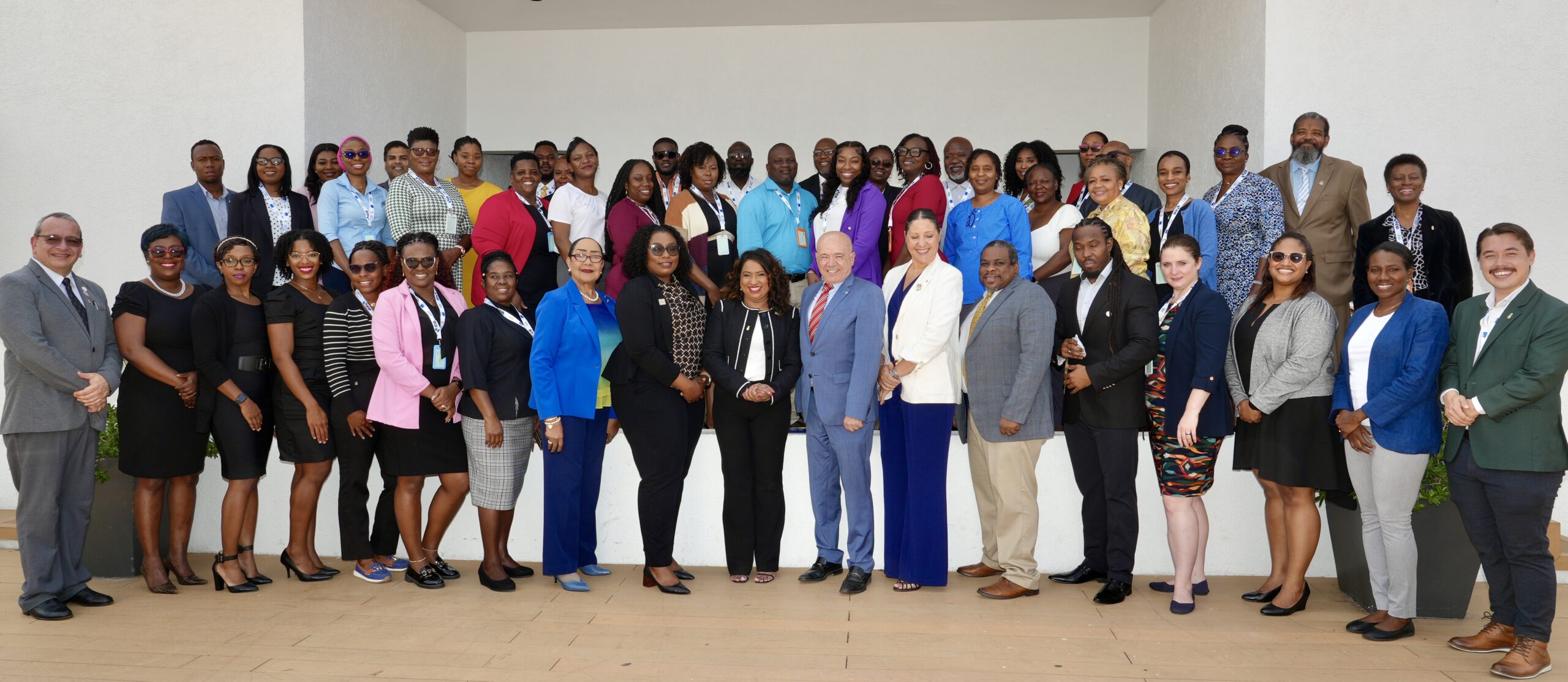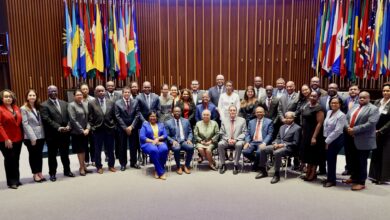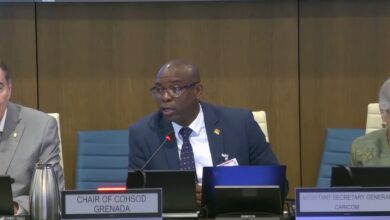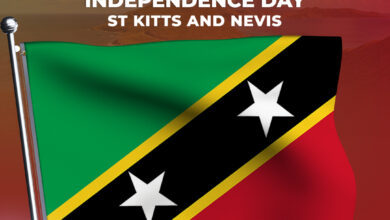“This workshop represents CARPHA’s continued commitment to strengthening Member States’ readiness and response capabilities with novel [Early Warning Systems] tools designed for the Caribbean context, i.e. small islands, varying surveillance and laboratory capacities, porous interconnected borders, tourism dependency and vulnerability to disasters and climate change impact. Through this initiative, we are reinforcing the foundation for EWS and a more timely, coordinated and resilient Caribbean public health system, one that responds quickly, decisively, and collaboratively to health emergencies.”
Dr Lisa Indar,
Executive Director of CARPHA
(Via CARPHA): The Caribbean Public Health Agency (CARPHA) has strengthened the Caribbean Region’s capacity to detect and respond to public health threats in a timely manner through a four-day Regional Multisectoral Workshop on Strengthening Emergency and Response (E&R) and Integrated Early Warning Systems (EWS), using CARPHA’s innovative EWS tools. The workshop was held in Kingston, Jamaica, from 8 to 11 July 2025, and brought together over 60 public health professionals from 11 Member States across the Caribbean.
Participants included national epidemiologists, surveillance officers, laboratory specialists, environmental health officers, emergency response coordinators, port health personnel, and representatives from ministries of health, tourism, and disaster management. The training focused on improving emergency coordination, enhancing surveillance capabilities, and strengthening countries’ ability to respond swiftly to public health threats.
The workshop was funded by CARPHA’s Pandemic Fund Project for Reducing the Public Health Impact of Pandemics in the Caribbean and the EU’s 11th European Development Fund Programme for Health Security Strengthening. Countries were trained in CARPHA’s Caribbean-tailored innovative tools for strengthening EWS, such as CARPHA’s enhanced DHIS-2 system, Timeliness Metrics Strategy, Tourism and Health Information System (THiS), and Mass Gathering Syndromic Surveillance System (MGSS).
A key focus of the training was the introduction of CARPHA’s Timeliness Metrics Strategy. This Caribbean-specific tool helps countries assess how quickly they move from detection to response during a public health event in a Caribbean small island developing, tourism-dependent setting. With its use, countries can identify delays and bottlenecks and improve national decision-making timelines to prevent rapid spread and large outbreaks.
Participants were introduced to the CARPHA digital surveillance tools used for early warning surveillance in the detection and monitoring of infectious diseases in different environments. The systems reviewed were the Tourism and Health Information System (THiS) used in tourism accommodations, the Cruise Ship Vessel Sanitation Surveillance system (CVSS) on cruise ships, and the Mass Gathering Syndromic Surveillance System (MGSS), which tracks symptoms reported during large public events. All tools are tailored to the Caribbean context and support early detection of unusual health events before they escalate.
The workshop featured simulation exercises that allowed participants to develop and test Incident Action Plans and strengthen real-time coordination among national sectors. These exercises also highlighted the importance of clear communication protocols and collaboration across agencies.
Dr. Lisa Indar, Executive Director of CARPHA, underscored the significance of the initiative. “This workshop represents CARPHA’s continued commitment to strengthening Member States’ readiness and response capabilities with novel EWS tools designed for the Caribbean context, i.e. small islands, varying surveillance and laboratory capacities, porous interconnected borders, tourism dependency and vulnerability to disasters and climate change impact. Through this initiative, we are reinforcing the foundation for EWS and a more timely, coordinated and resilient Caribbean public health system, one that responds quickly, decisively, and collaboratively to health emergencies.”
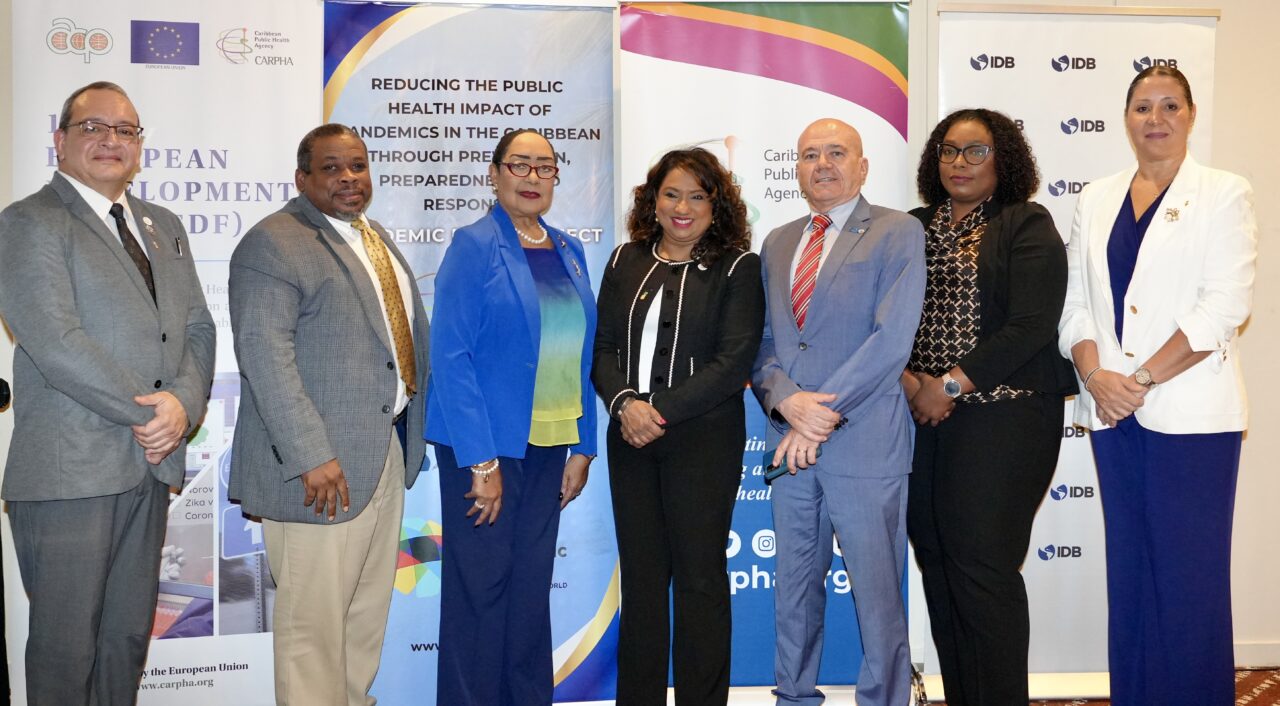
Speaking on behalf of Mr. Errol Green, Jamaica’s Permanent Secretary of the Ministry of Health and Wellness, Mr. Howard Lynch, Chief Technical Director, Policy, Planning and Development, said, “What is certain is that health threats are no respecter of borders and early detection is crucial in mitigating their impact. Strengthening regional and multisectoral coordination is a sign of our deepened investment and commitment to health sector resilience. This collaboration is sure to enhance information sharing, promote research and shore up early warning and disease surveillance systems; laboratory systems and strengthen public health human resources.”
Ms. Karisa Ribeiro, Chief of Operations at the Inter-American Development Bank (IDB), underscored the importance of CARPHA’s leadership in advancing regional resilience. “As a trusted authority in regional health, CARPHA has launched the groundbreaking [CARPHA Pandemic Fund] project to reduce the public health impact of pandemics in the Caribbean through prevention, preparedness and response. This project goes beyond national borders, as Dr. Lisa (Indar) mentioned; it recognises that no single country can tackle pandemic threats alone. Regional coordination is not a luxury. It is a necessity,” she emphasised.
Mr. Aniceto Rodriguez-Ruiz, Head of Cooperation at the EU Delegation to Jamaica, Belize and The Bahamas, remarked, “The EU is deeply committed to strengthening resilience in the Caribbean with CARPHA and to recognising the Region’s vulnerability to disasters, climate change and health emergencies. Central to this commitment is enhancing the public health infrastructure to reduce the impact of pandemics through comprehensive prevention, preparedness and response strategies.”
The workshop’s outputs, including revised emergency action plans and protocols for coordinated multisectoral response, will contribute to national planning processes and support Member States’ progress toward the Joint External Evaluation (JEE) benchmarks. These benchmarks are part of a World Health Organization-led process that helps countries assess and improve their capacity to prevent, detect, and respond to public health emergencies. CARPHA will continue to provide technical assistance to support Member States in applying the tools and strategies learned during the workshop.
About the Pandemic Fund Project
CARPHA is the Executing Agency for the Pandemic Fund Project, with the Inter-American Development Bank (IDB) as the Implementing Entity. The goal of this Project, which spans from 2024 to 2026, is to reduce the Public Health Impact of Pandemics in the Caribbean through Prevention, Preparedness, and Response (PPR). The objective is to support the reduction of the public health impact of pandemics in the Caribbean by building pandemic PPR surveillance and early warning systems, laboratory systems and workforce capacity, regionally at CARPHA and at country levels. This will reduce the transboundary spread of infectious diseases and improve regional and global health security. CARPHA is the beneficiary of the PF project and CARPHA Member States are the participants.

